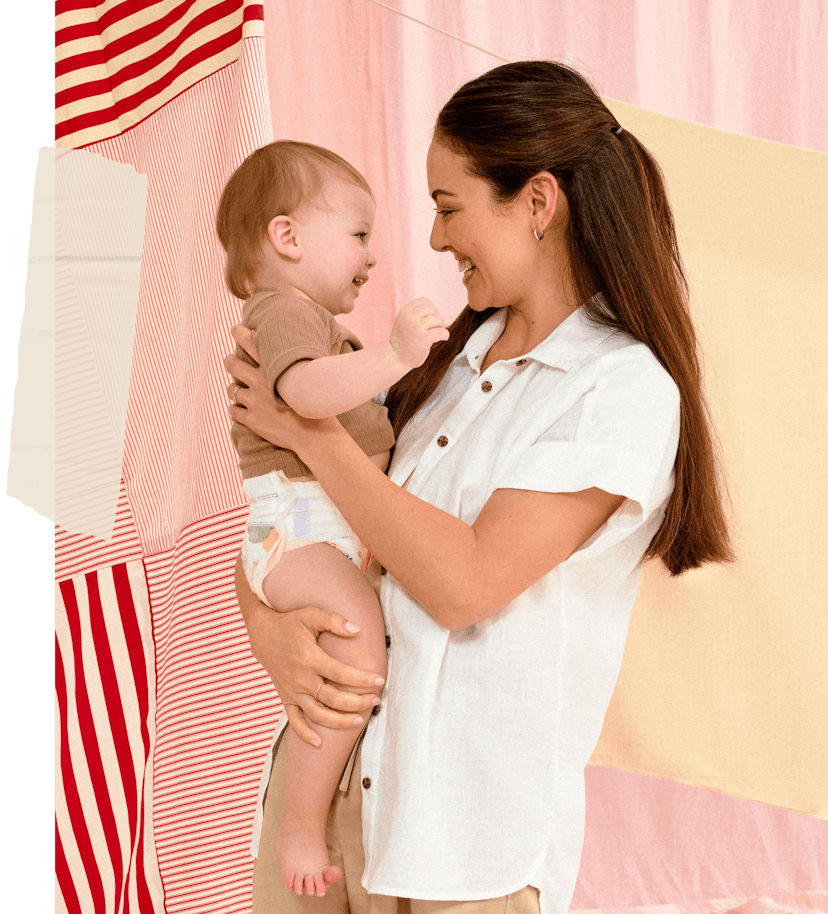Parenting

When Will My Baby Start Moving? An Expert Explains What To Expect & How To Prepare
Ready, set, go!
In the early days, weeks, and months, a baby doesn’t do much other than eat, poop, sleep (if you’re lucky), and repeat. Throw in some adorable faces, coos, and those oh-so-good newborn cuddles and you pretty much have newborn-hood down pat.
But then, it happens.
Somewhere around the 6 month mark, your baby might start rolling over and sitting up. Then, they might start to army crawl or get on their hands and knees, ready to crawl for real. You might turn your head for a second and all of a sudden they’ve made it halfway across the room! And then finally, you blink and they’re walking.
While every baby will begin to move around on their own terms and timeline, there are movement milestones unique to infant development that you can look forward to within a general timeframe. (And if you have any concerns about your baby’s milestones or development, be sure to consult with your pediatrician.) To learn more about when your baby will start moving and how you can feel prepared, Romper spoke with Kristine Lowenwirth, MS, OTR/L, a New Jersey-based pediatric occupational therapist. Keep reading to brush up on the magical movement milestones of babies.
Between 7 & 12 Months
Like I mentioned, you won’t be seeing a lot of movement during the first six-ish months of your baby’s life, but right around the 7 to 12 month mark, Lowenwirth says babies are typically no longer content on their backs or just being held. “They can be observed flipping from supine [lying face-up] to prone [lying on their tummy] and vice-versa at their leisure. At this stage, babies can often be observed exploring their environments by crawling and scooting.”
To prepare, you’ll want to get started on baby-proofing your home. “At this age, a baby’s hands are constantly grabbing, picking things up, and exploring. They are also in a phase of oral development that may have them putting everything in sight in their mouths,” says Lowenwirth. So you’ll definitely want to make sure any small pieces are properly put away, medicine and under-the-sink cabinets are locked or secured, and anything else you don’t want your little one digging into (and possibly ingesting) is out of reach.
Between 13 & 18 Months
Around their first birthday, Lowenwirth says babies will start to “creep”, pull-to-stand independently, and even maneuver around on their two feet while holding on to something stable. This is also where their first steps come into play, and eventually full-on walking.
If your baby has started to walk, now is a great time to find a properly fitting shoe to support their feet while they’re toddling around. Along with properly fitted footwear, a comfortable, secure diaper is really important, too. Help prevent accidents and keep your little one comfortable with Huggies Little Movers, the #1 fitting diaper* with a curved stretchy fit, designed to help eliminate gaps to keep your little mover snug and secure while they’re on the move.
Between 19 & 24 Months
Right around their second birthday, babies have officially graduated into the toddler stage. “If you’re able to keep up with them, you can typically observe them running, walking downstairs, walking backwards, balancing on one foot, and kicking a ball,” Lowenwirth explains. She adds that this is a very exciting yet exhausting stage for parents, making it all the more important to be equipped and prepared.
One of the best things you can do to prepare for this stage is to stick close to your little one at all times. At this age they can run, climb, and cause all sorts of toddler-induced trouble, so being aware and engaged is key.
*Wet fit, among branded open diapers.